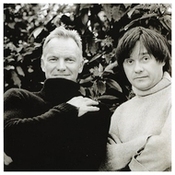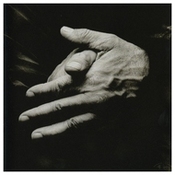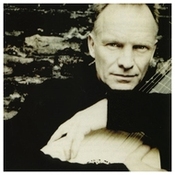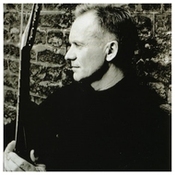
Songs From The Labyrinth
Standing Ovation for Sting Playing 17th-Century Pop...
Sting has captivated Milan many times before with mega concerts and stadium-sized performances, but this time, rock and jazz had nothing to do with it. The former Police singer performed a classical repertoire in the church of Santa Maria delle Grazie, accompanied by the sound of the lute. The songs were by John Dowland, the famous Elizabethan composer (1536–1626). This event celebrated Sting's latest work, "Songs From the Labyrinth," which was certified gold yesterday in Milan and is a prelude to his world tour, which kicks off in February. A lucky few attended the free concert, securing tickets that sold out in minutes. Gordon Matthew Sumner took the stage wearing a black jacket, accompanied by his musician friend Edin Karamazov, who introduced him to the sound of the lute and accompanied him throughout the concert.
Before beginning his performance, Sting briefly recounted John Lowland's biography, explaining that the composer was a sort of Jimmy Hendrix of the Elizabethan era and that his entire life was spent dreaming of performing at the English court, but never quite achieved it. Although the audience had been asked at the beginning of the concert not to applaud between songs to allow the music to be heard down to the last note, they tried to resist, but after two songs they couldn't resist, and a warm applause broke out. The rarefied, at times melancholic atmosphere, inspired by 17th-century melodies, alternated with readings of passages from letters written by composer John Lowland and recited by Sting.
At the end of the performance, after a standing ovation, he granted four encores, including two of his well-known songs reinterpreted in a Renaissance style: "Fields of Gold" and "Message in a Bottle." The concert will be broadcast on Rosso Alice from December 20th on a delayed basis for 60 days, allowing all those who were unable to attend the live acoustic performance to enjoy—as Sting explained in the press conference—"extraordinary 17th-century pop songs, which I have re-performed with passion and amazement."
(c) Alice News
The lute-playing rock star rediscovers 17th-century music in church...
Noblesse oblige. To perform his "Songs From the Labyrinth," a CD dedicated to John Dowland's Renaissance music, Sting chose the Basilica of Santa Maria delle Grazie in Milan, where he received the city's "seal." Small spaces, in short, the same ones the singer-songwriter chose in London and Berlin. It's certainly not enough for the hundred thousand people who welcomed him to Piazza Duomo last July for his most successful act: that of a rock star. In fact, whether due to the controversy or the repertoire, the basilica wasn't overrun by ticketless fans.
And how does Sting fare as a troubadour? Good, because he's a clever communicator, and he knows how to transform the rough spots along the way (some uncertainties in phrasing or a few slightly cold passages) into little surprises for those who listen. There he is, caressing the lute alone in the introductory "Walsingham," and there he is in a duo with the virtuoso Sarajevo lutenist Edin Karamazov, the instigator of this project, in "The Battle Galliard" or in "La Rossignol," previously unreleased on CD. And here, live, you realize the value of the operation. He had said it at the beginning. "Dowland is the father of all English singer-songwriters; with his ballads, he was the king of 17th-century pop." Noble music with popular roots, Walsingham is, not surprisingly, the elaboration of an ancient folk theme; and Sting captures precisely this spirit. Be careful, this is not a bland modern reinterpretation of ancient works; it is bringing a repertoire - locked away for too many years in an ivory tower - back to the people.
If you look with disenchantment at the poetics of the lyrics presented here - from 'Flow My Tears' to 'Weep You No More Sad Fountains' to 'In Darkness Let Me Dwell' - they could be those of one of the most cultured and acclaimed songwriters of our time.
This is how Sting interprets them, with that seemingly thin voice that oscillates between one key and another and travels along free rhythms - supported by the depth of the chorus - putting his own spin on them while remaining as faithful as possible to the original. It's an art that transcends genres and styles, where even complex performances like 'Flow My Tears' become precious not so much for the clarity of the execution but for the pathos. "I don't have a Pavarotti voice, but I rely on the authenticity of the singing," Sting said at the album presentation. It's not an excuse; it's his way of experiencing music, straddling aestheticism and sensuality, cultured and popular, spontaneity and artifice, snobbery and simplicity. Sting recounts Dowland - a Catholic artist exiled by English monarchs - as he travelled through the courts of half of Europe, including that of the Medici. He does so by alternating music with readings of his vibrant letters, outlining his story. Before the dreamy and melancholy "Have You Seen the Bright Lily Grow," Sting discusses the author Robert Johnson, a renowned lute player and son of John Johnson, whom Dowland hoped to replace at the court of Elizabeth I in 1595.
It's a story that unfolds slowly, somewhere between reading and concert, where the evocative sounds of the delicate "Come Heavy Sleep" are echoed by a letter to Sir Robert Cecil expressing his desire to visit Florence and Venice.
A historical and musical journey that transforms ancient Shakespearean atmospheres into the present. It's the transfiguration of Sting, in short, who had never ventured so far in his wanderings to shores far from rock. No more sound barriers, is Sting's message which, to drive home to the audience, he performs classics such as 'Message In a Bottle' and 'Fields of Gold' on the lute and the dramatic blues 'Hellhound On My Trail' by Robert Johnson, king of the cursed blues (homonymous to the one mentioned above), to give a touch of mystery to an idyllic evening.
(c) Il Giornale by Antonio Lodetti
Sting's music bewitches Milan - Success at Santa Maria delle Grazie...
For one evening, the Basilica of Santa Maria delle Grazie opened its doors to one of the greatest exponents of world music for a unique concert. Sting performed "Songs From The Labyrinth," dedicated to the music of John Dowland, a famous musician of the Elizabethan period. At the end of the concert, the singer surprisingly performed "Fields of Gold" and "Message in a Bottle," accompanied on the lute and archlute by Bosnian Edin Karamazov.
Sting, dressed all in gray, including his vest, alternated songs with excerpts from letters Dowland sent to Secretary of State Robert Cecil. These were slow, short songs about intrigue, heartbreak, religious struggles, and escapes into sleep and dreams. From "Walsingham" (just 38 seconds long) to "Flow My Tears" and "The Lowest Trees Have Tops," all the way to "Clear or Cloudy" and "In Darkness Let Me Dwell." These names still don't mean much to traditional fans of the English rocker (a deliberately anti-commercial choice that has already achieved good sales results, with the band receiving a gold record in Italy).
The audience included some of the most famous names in the entertainment industry, including Susanna Messaggio, Ornella Vanoni accompanied by Mario Lavezzi and a friend, Marco Predolin, Paolo Kessisoglu from "Le Iene," an "almost sober" Milly D'Abbraccio who majestically strode across the entire nave of the Basilica, and a surprise appearance by Zucchero.
A few hours earlier, Giovanni Terzi, Councillor for Sport and Leisure for the City of Milan, had presented Sting with the Seal of the City of Milan "for the artistic and cultural value he brings to Milan and Italy through music."
(c) TGCOM
Sting brings the music of John Dowland (and the blues) to Santa Maria delle Grazie...
It could have been one of the events of the year: the City of Milan, as part of its pre-Christmas music festival, brought Sting to one of the city's most evocative locations: the church of Santa Maria delle Grazie, home to Leonardo da Vinci's Last Supper. It wasn't a rock concert, but rather one of the rare previews of the tour of 'Songs From the Labyrinth,' a work for voice and lute published by Deutsche Grammophone and dedicated to the 16th-century English composer John Dowland.
Announced a few weeks ago, yesterday's concert, December 13th, immediately turned into an event: ticket sales (a few hundred seats available, most invited, and just under 200 given away free) and the resulting "royal parterre" of self-styled "VIPs."
Once inside the church, the view is impressive: the dome is illuminated with coloured lights, and the stage, located in front of the altar, is completely covered in white cloth, even the speakers, so as not to obstruct the view while admiring Brunelleschi's masterpiece. People jostle for reserved seats, many standing behind the columns. At Sting's request, the evening's host asks for no applause during the performance, along with the usual reminder to turn off cell phones. Sting himself appears intimidated by the venue: he begins by telling the story of Dowland, his frustrations at not being recognized during his lifetime. He alternates readings with "songs" by Dowland and contemporary Robert Johnson ("not the bluesman," he jokes). He's clearly struggling to warm up his voice, which falters at times, and after three songs, he calls for applause, almost as if seeking a little warmth. He's accompanied by Bosnian lutenist Edin Karamazov, occasionally taking up the lute himself, and on a couple of occasions the English vocal group Stile Antico takes the stage to complete the performance.
After less than an hour, the main concert, dedicated to 'Songs From The Labyrinth,' is over. Sting returns and, surprisingly, begins the encore with reworkings of modern repertoire for voice and lute: 'Fields of Gold' and 'Message in a Bottle,' sung with the same vocal tone as Dowland's music. In between, there's also a cover, Robert Johnson's 'Hell Hound on My Trail,' this time by the bluesman himself. The attempt is to showcase the ancient roots of modern music, but the result falls short of its intentions, merely succeeding in bringing into a church the music of a bluesman who, it is said, sold his soul to the devil.
There's still time for a proper encore from Dowland, and the evening ends, with VIPs exiting and commenting, some even escorted by bodyguards. It could have been one of the events of the year, a rock star playing in a place so steeped in history. Instead, it was just another social event, and musically, it wasn't as impressive as one might have imagined.
For the record, Sting will return with the full 'Songs From The Labyrinth' tour for three dates in early 2007: one, yet to be confirmed, at the Auditorium Parco Della Musica in Rome, and two in Florence (Teatro Del Maggio) and Milan (Teatro degli Arcimboldi), on February 22nd and 23rd, respectively.
(c) Rockol






